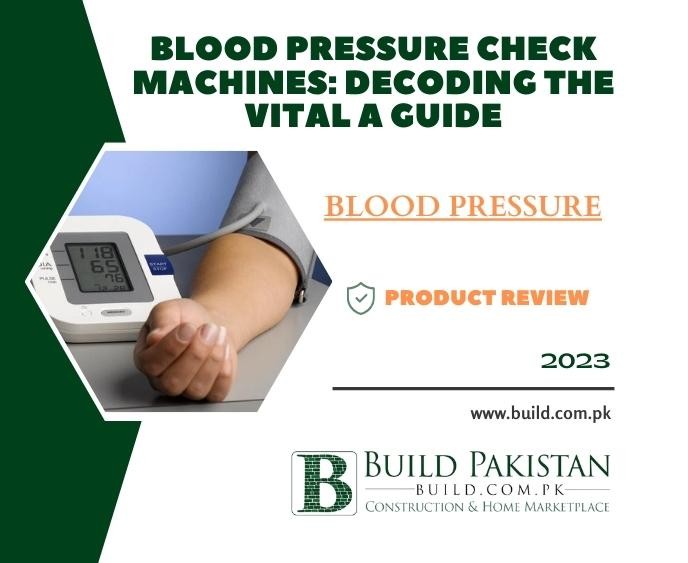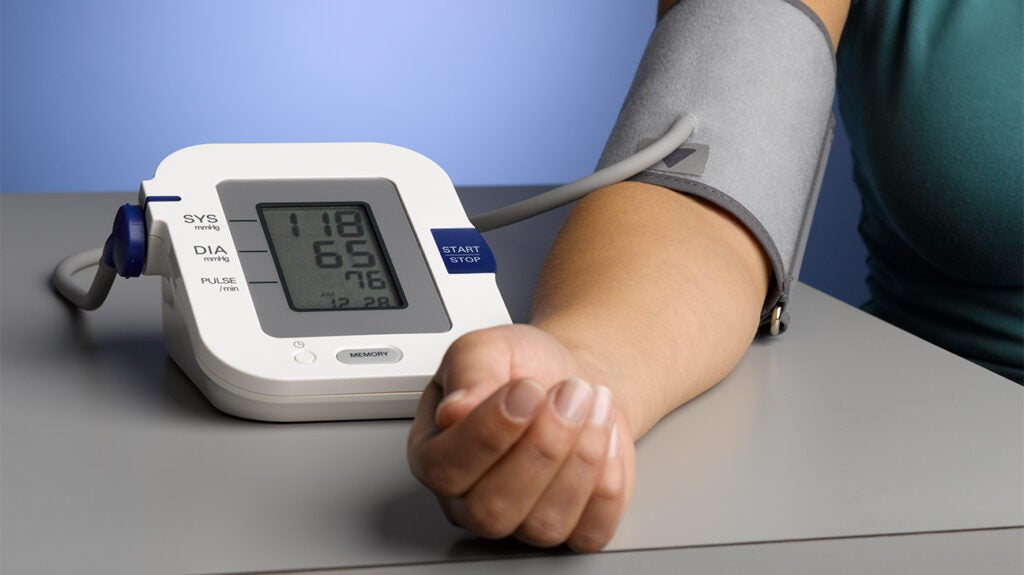Blood Pressure Check Machines: Decoding the Vital A Guide

Introduction:
In the realm of personal health monitoring, the Blood
Pressure (BP) Check Machine stands as a pivotal device, providing valuable
insights into cardiovascular well-being. In this extensive blog, we delve deep
into the intric acies of BP check machines, exploring their significance, types,
proper usage, and the role they play in maintaining optimal health.
Understanding Blood Pressure
The Basics of Blood Pressure:
Blood pressure is the force exerted by circulating blood
against the walls of the arteries. It is a critical indicator of cardiovascular
health, comprising two main values: systolic pressure (the pressure when the
heart beats) and diastolic pressure (the pressure when the heart is at rest).
The Importance of Monitoring:
Regular monitoring of blood pressure is crucial for
identifying potential health issues such as hypertension or hypotension. Timely
awareness and intervention can significantly contribute to the prevention of
cardiovascular diseases.

The Role of BP Check Machines
Significance in Healthcare:
BP check machines, also known as sphygmomanometers, play a
pivotal role in healthcare. They provide a quick and non-invasive means of
assessing blood pressure, aiding healthcare professionals in making informed
decisions regarding a patient's cardiovascular health.
Home Monitoring:
The advent of digital BP check machines has empowered
individuals to monitor their blood pressure conveniently at home. Home
monitoring is especially valuable for those with chronic conditions, enabling
proactive management and early detection of any anomalies.
Types of BP Check Machines
Manual Sphygmomanometers:
Traditional manual sphygmomanometers consist of an inflatable
cuff, a pressure gauge, and a stethoscope. They require a degree of skill to
use accurately and are often employed by healthcare professionals in clinical
settings.
Automatic Digital BP Monitors:
Digital BP monitors, the more commo:n type for home use, are
automatic and user-friendly. They typically feature a cuff that inflates at the
press of a button, providing quick and accurate readings. Many also come with
additiona l features such as memory storage and irregular heartbeat detection.
Proper Usage Guidelines
Choosing the Right Cuff Size:
Ensuring the correct cuff size is crucial for accurate
readings. An ill-fitting cuff can lead to inaccurate measurements. Most BP
check machines come with adjustable cuffs, but it's essential to follow the
manufacturer's guidelines for proper sizing.
Rest and Relaxation:
To obtain accurate readings, individuals should be in a
relaxed state. It is advisable to avoid caffeine, exercise, or stressful
situations at least 30 minutes before measuring blood pressure. Also, it's
essential to sit quietly for a few minutes before the measurement.
Consistency in Measurement:
Consistency is key when monitoring blood pressure. Ideally,
measurements should be taken at the same time each day and using the same arm.
This consistency helps in tracking trends and identifying any deviations that
may require attention.
Understanding Blood Pressure Readings
Normal Range:
Blood pressure readings are typically expressed as two
values: systolic over diastolic. The normal range for blood pressure is
commonly considered to be around 120/80 mmHg. Readings above this range may
indicate hypertension, while readings below may suggest hypotension.
Interpreting Readings:
Understanding blood pressure readings involves recognizing
the categories, which include normal, elevated, hypertension stage 1,
hypertension stage 2, and hypertensive crisis. Each category informs healthcare
professionals and individuals about the level of risk and the appropriate
course of action.
The Evolution of BP Check Technology
Wireless and Smart Monitors:
Advancements in technology have given rise to wireless and
smart BP monitors. These devices can sync with smartphones or tablets, allowing
users to track and analyze their blood pressure trends over time. Some smart
mon itors even come with features like irregular heartbeat detection and data
sharing with healthcare providers.
Integration with Health Apps:
Many BP check machines seamlessly integrate with health apps,
contributing to a holistic approach to health management. Users can keep track
of their blood pressure alongside other health metrics, fostering a
comprehensive understanding of their well-being.
The Future of BP Monitoring":
As technology continues to advance, the future of BP
monitoring holds the promise of even more sophisticated and integrated
solutions. Wearable devices that continuously monitor blood pressure and offer
real-time insights into cardiovascular health are on the horizon, providing a
proactive approach to preventive healthcare.
Conclusion:
In conclusion, the BP check machine stands as a crucial tool
in the realm of health monitoring, offering insights that are invaluable for
preventive healthcare. From traditional manual sphygmomanometers to the latest
sma rt monitors, these devices empower individuals to take an active role in
managing their cardiovascular well-being. As technology continues to evolve,
the future of BP monitoring holds exciting possibilities, promising a more
connected and proactive approach to health.









